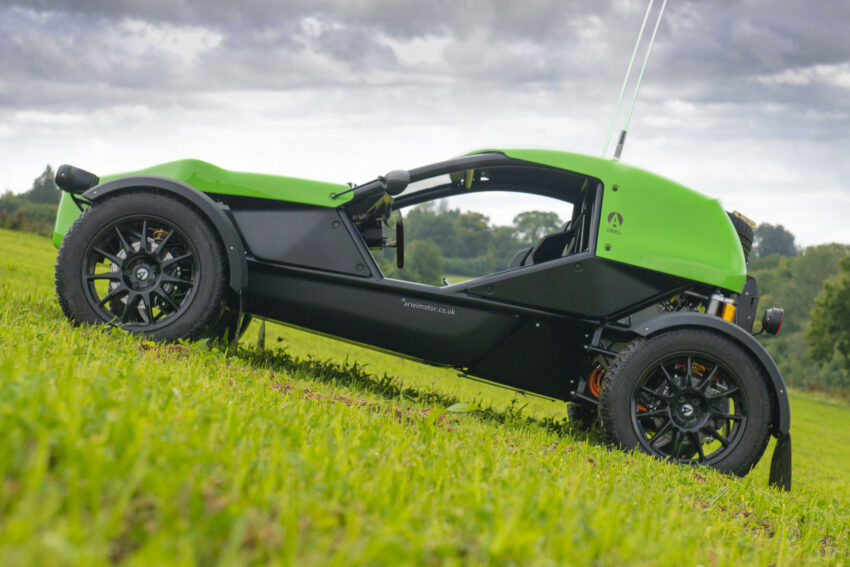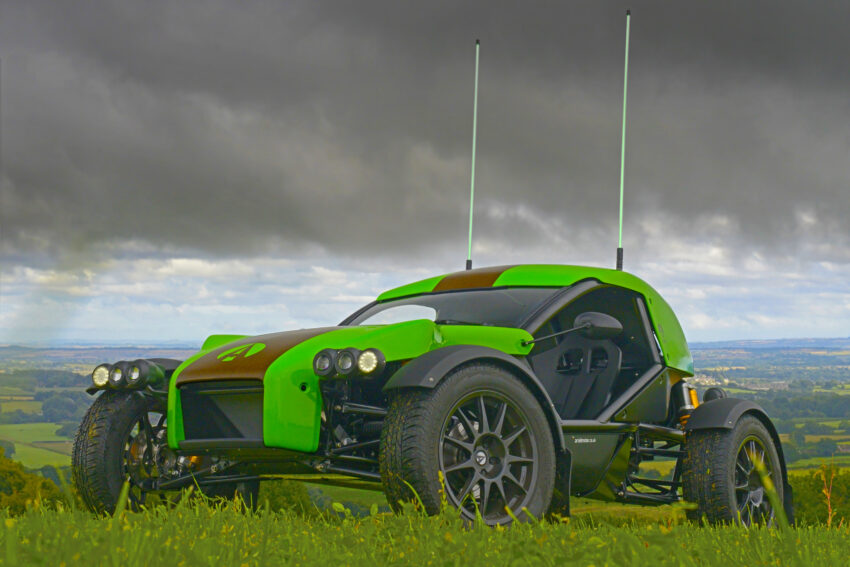Ariel e-Nomad concept hints at extreme electric future
Ariel, the British firm behind extreme lightweight cars such as the Atom and Nomad, has given a glimpse of its plans for an all-electric model with the e-Nomad.
Although it is currently a one-off concept, the Somerset car maker says that the e-Nomad shows ‘production intent’ and hints at just a small part of its plans for the future.
Building on its ‘serious fun’ ethos to become ‘serious clean fun’, the e-Nomad is based on the recently launched Nomad 2 and offers the same blistering performance and blend of on- and off-road capabilities.
Using a 281bhp/361lb ft rear-mounted motor, the e-Nomad can sprint from 0-62mph in just 3.4 seconds – the same time as its 305bhp petrol-powered equivalent. A 41kWh battery developed specifically for the car by Rockfort Engineering brings a range of 150 miles and recharges from 20-80% in under half an hour via DC charging.
Ariel says that the e-Nomad doesn’t compromise on the all-terrain abilities of the regular ICE car, and is fitted with a limited-slip differential and tuneable powertrain management system to deliver the same extreme go-anywhere fun. The motor management includes on- and off-road drive modes and can alter power delivery, braking regeneration and performance profiles to suit different driving situations and terrains. The prototype car also features eco and sport drive modes which unlock different levels of power and torque, and includes multi-stage regen, including full one-pedal driving.
Central to Ariel’s ethos is weight saving and the electric Nomad weighs just 896kg thanks to lightweight powertrain components and innovative bodywork that reduces drag by 30% compared with the regular Nomad.

In place of the Nomad’s carbon fibre panels, the e-Nomad uses panels made from natural flax. Selected for its mechanical and structural qualities, Ariel says the material’s long, continuous, cellulose fibres offer excellent tensile strength and stiffness along with light weight.
As well as being lighter, Ariel, says the production of these panels is greener too. The flax itself is carbon capturing while growing and the main panels are backed by reinforcing ‘Power Ribs’ made from more bio-composite natural fibre. Manufacture of this material brings a 73% CO2 saving compared with carbon fibre and is 9% lighter than the equivalent carbon material.
The tooling production of the panels has also reduced emissions compared with traditional processes. Using direct tooling rather than conventional moulding resulted in a saving of over 50% in CO2.
Simon Saunders, Ariel’s director said: “While the E-Nomad is a concept, it does show production intent for the vehicle and hints at just a small part of Ariel’s future.
“Once it has been through our usual, gruelling testing regime we could opt to add E-Nomad alongside its ICE Nomad 2 sibling, so we’ll take great interest in customer feedback on the concept car.”






